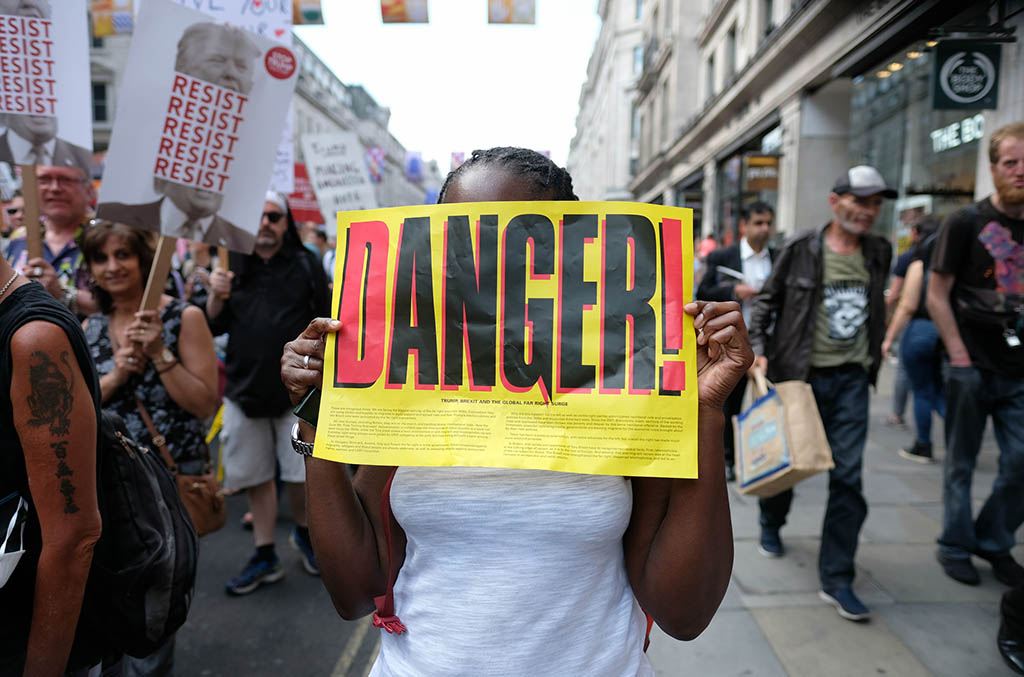
The radical right is on the rise in a range of democracies, from Europe to Brazil, from the US to the Philippines. It is globalising rather than internationalising. There seems to have been a co-occurrence of issues and strategies, rather than an organised global movement, despite the efforts of Steve Bannon, Donald Trump’s former election strategist, to personify the surge with an organisation he has dubbed The Movement. The possibility of these radical-right groups forming some sort of mutual aid organisation cannot be ruled out. But they do not constitute an International. Indeed, the very concept would run counter to their own proposals.
Their electoral methods tend to be similar, especially a consummately professional use of social media (something Barack Obama was the first to master) and the manipulation of fake news. The election of Jair Bolsonaro as the new Brazilian President cannot be explained without recourse to the feverish use of social media in Brazil, the endorsement of the evangelicals and their ‘prosperity theology’ or the frustration felt by the middle classes, who had been making headway only to slip back again amid economic recession.
It is precisely this movement by part of the middle classes and workers undergoing a process of losing their social status that could hinder any coordination of the radical-right groups, because their interests and visions are in opposition. First, they all assert ‘my country first’. This could give rise to conflicts. In general, these radical-right groups are in a process of turning inwards, unlike the Nazi and fascist movements of the 1930s. The ideological emphasis of these new radical-right groups is far more frivolous, hypermodern. Secondly, we are seeing a clash between middle classes (and working classes) that could be prevented, as Miguel Otero, Federico Steinberg and I have suggested: between those on the rise in developing countries, like Brazil, that want to continue rising, and those on the wane in developed countries that do not wish to fall. The radical-right groups feed on both. Each defends its own. That is a further contradiction, although almost all of them look to Trump, Putin and even China as their models.
These movements are symptoms of various social ills rather than their cause. But they also have the capacity to become causes. Radical-right groups wield a considerable contaminating power over the way democracies function and over the moderate right, and even part of the left. The boundaries are not clear, still less when in certain countries the political centre seems to be disappearing in the face of growing polarisation. Trumpism has penetrated the US Republican Party to its core. The Hungarian Fidesz party, led by Viktor Orbán, belongs to the European People’s Party (EPP), and it remains to be seen what attitude the latter takes after the forthcoming elections to the European Parliament, where, if it resembles the current one, these radical-right parties will be divided between four or more political groups. The EPP will need to choose at its conference in Helsinki this week its candidate for the presidency of the European Commission. Manfred Weber, of the Christian Social Union in Bavaria, sets out as favourite. He represents a swing to the right and the countenancing of the radical right that the EPP may need in the wake of the European elections in May.
Following Angela Merkel’s decision to stand down as the leader of the CDU, and her announcement that she will not put herself forward for the chancellorship at the next election –which may be brought forward– it is questionable whether the German Christian Democrats will remain in the centre or lurch to the right, with consequences for a Europe that has stalled in Berlin. The possibility of Merkel, liberated by her decision not to carry on, launching herself into a new joint European drive with Macron, who is trying to shine abroad in a way that he is failing to do at home, cannot be ruled out. Of course, the EU is stalling in many other capitals, amid the rise of radical-right groups with a very distinct view of European integration; they are not calling for their countries to withdraw from the EU, owing to the difficulties with Brexit, but rather for the Union to be pared down so that member states cease sharing sovereignty and even (though this is a delusion) reclaim it.
Clearly, it is not the same for the radical right to attain power through the ballot box in Brazil and the Philippines as it is in the US, given the strength of the latter country’s democratic framework. Some radical-right parties would do away with democracy, and certainly the rule of law and the division of powers, if they could. Judgement in this respect in Europe, in the cases of Poland and Hungary, must be reserved, although membership of the EU has up until now entailed, for all concerned, a boost for democracy and the strength of the rule of law. That it continues to be so is a safeguard.


